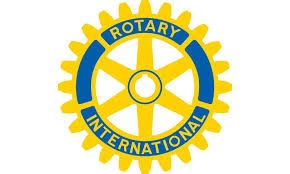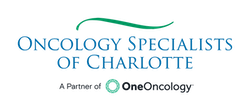
The below article was published in the Rotary Club of Charlotte's February Newsletter:
Appropriately, Charlotte Rotary Club’s speaker on World Cancer Day (February 4th) was Justin P. Favaro, MD, Ph.D., a board-certified medical oncologist, and hematologist. And the message he brought was one of hope. “Cancer survival rates are increasing for most types of cancer.”
The Medical University of South Carolina graduate also talked about some new trends among health care providers which portend not only improvements in care but also reductions in cost for cancer care and treatment in the greater Charlotte market.
Dr. Favaro, whose practice is Oncology Specialists of Charlotte at 2630 E 7th St, began his talk comparing how treatment has changed during the past 20 years for two types of cancer – breast and lung.
He began with a 60-year-old woman diagnosed with breast cancer in 2000. First note, he said, that different fields of medicine participate in the diagnosis and treatment: surgery, chemotherapy, and radiation therapy. As a medical oncologist, “I’m referred if she needs chemotherapy.”
In 2000, this could mean six months of treatment with chemotherapy. Radiation to the breast and five years of estrogen therapy may also be needed.
Over the last 20 years, there have been new developments. There are more targeted therapies. One of those is Oncotype DX, a test that can predict how likely breast cancer is to return and if a patient will benefit from having chemotherapy in addition to hormone therapy. “We have found that many women who received chemo in 2000 did not benefit from it! Research has helped us understand what proteins are mutated in the cancer cell and led to the development of targeted therapy. These drugs have fewer side effects but improve outcomes.”
There are new treatments to mitigate hair loss from women receiving chemo. The DigniCap scalp cooling system consists of a computerized cooling unit attached to a cooling cap which reduces hair loss from certain chemotherapy treatments.
In 2020, a 60-year-old with breast cancer faces surgery and radiation but chemo is not always needed because there a new, targeted treatments with fewer side effects. There are two:
Herceptin, a monoclonal antibody, used to treat some types of cancer, either alongside chemotherapy or alone; and Perjeta, an antineoplastic agent and a monoclonal antibody.
“It adds up to increased survival rates and a shorter and better experience for the patients,” said Dr. Favaro, who received his fellowship hematology and oncology training at Duke University Medical Center.
In 2000, a 60-year-old with Stage IV lung cancer faces particularly daunting prospects. Since cancer had already spread, he explained, there was no role for surgery or radiation, just chemotherapy.
There are now more targeted chemotherapy therapies, he noted. The sequencing of the cancer cell genome has identified mutations and genes. At the same time, cancer research has focused on neutralizing these mutate proteins and developed drugs, some oral, which can dramatically improve cancer treatment through immunotherapy.
One of these is Tarceva, which interferes with the growth of cancer cells and slows their spread in the body. Another is Opdivo, an immunotherapy drug that works with the immune system's T cells to recognize and attack cancer cells.
In 2020, this 60-year-old with the same diagnosis has even more targeted therapies including Opdivo and Tagrisso which treats non-small-cell lung carcinomas with a specific mutation. It is a third-generation epidermal growth factor receptor tyrosine kinase inhibitor and has led to improved quality of life and longer survival, some long term.
‘Today”, he said, “we are at the top of the iceberg. These new treatments have side effects and don’t work for everyone. We must improve our treatments for stage IV cancer patients.’
Dr. Favaro also talked about the costs of some of these therapeutic agents. IV treatment is well covered by most insurance once deductibles are met. The costs for one month of the drugs, not the administration, are as follows: chemotherapy, $600; Herceptin, $4500; Biosimilar Herceptin, $3600; immunotherapy, $12,500.
One factor that goes into the equation for the final bill for cancer care is the site of care, and that led Dr. Favaro to talk about changes to medical practice ownership in Charlotte. Twenty years ago, most physicians owned their practice, he said. In 2000, he noted that he and his former partners who were employed by a hospital left to start their own private practice.
“I joined because I wanted to have control over how the care was delivered, I believe that value-based care with low overhead and emphasis on outpatient was ultimately going to be the dominant model of health care delivery, especially in the setting of the expensive drugs we have just talked about.”
Nationwide, hundreds of oncology clinics have closed since 2008, the Clemson alumnus said. There were many reasons; among them the burden of regulations, hospitals purchasing primary care physician practices, thereby controlling referrals, lucrative insurance contracts that gave hospitals more money and power.
In the Queen City in 2015, more physicians were employed by a hospital system. Large cancer centers were built which offered new services to patients: bone marrow transplant increased clinical trials.
“I recognize that the addition of services to our patients in Charlotte is a good thing. But I also know that outside of these specialized services, most of the cancer treatment can be delivered very well in a physician-owned practice, he said.
Dr. Favaro noted that were some negative consequences in terms of cost as the consolidation occurred. The hospitals became networks. Large networks of hospitals and outpatient clinics could negotiate better contracts with insurance companies. Hospitals also could charge more for the same services, he said.
The cost of cancer care is higher in a hospital-owned vs private practice,” the physician said, “and the quality is the same if not better: breast cancer, 66 percent more; lung cancer 48 more; colorectal cancer 56 more, according to an October 2018 article in the Journal of Oncology Practice.
Today, the Charlotte market dynamics are shifting back to private practice. It began with primary care when doctors leaving Atrium Health formed the Tryon Medical Group and physicians leaving Novant’s Lakeside Primary Care practice joined the Holston Medical Groups.
“The balance between hospital-based care and the growing sector of non-hospital affiliated practices is more in balance today. The unseen part of the iceberg is our greatest hope, Dr. Favaro said, “the opportunity for business to partner with independent practices. We know how to deliver high-quality health care and are motivated to deliver that care at a lower cost. We are low overhead!”
Dr. Favaro also invited Rotarians to take part in the “Sit in My Chair” program sponsored by the Community Oncology Alliance of which his practice is a member. He invited Rotarians “to see firsthand the cancer care that we deliver to the community.” The goal is to provide a greater appreciation of what cancer patients experience when they are diagnosed with and treated for this devastating disease. To participate, go online to oncologycharlotte.com.
The program was introduced by Rotarian Jeff Atkinson, a patient of Dr. Favaro, who was diagnosed with Stage IV mucosal melanoma and is cancer-free today.
published: Feb. 11, 2020, 11:25 a.m.
